Get the most bang for your produce bucks
Let’s face it, fruits and veggies can be a little pricey—plus they tend to go bad in a hurry. If you want to spend wisely, aim for the most concentrated sources of antioxidants—which you can now identify thanks to food scientists at the Human Nutrition Research Center on Aging at Tufts University. Take this list with you to the grocery store.
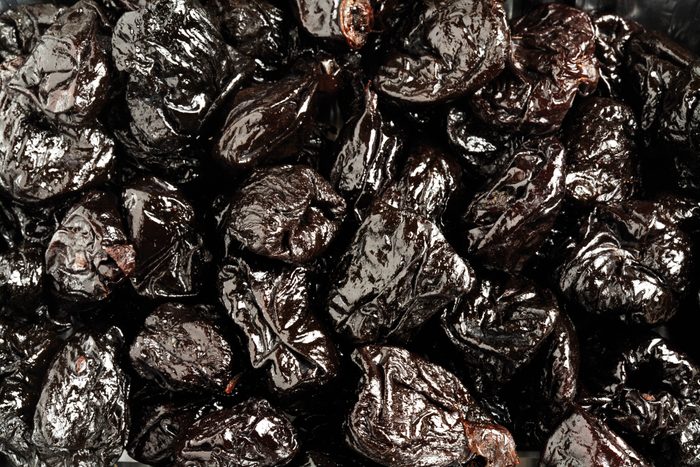
Prunes
Black plums have 4873 total antioxidants, according to a study in the Journal of Agricultural and Food Chemistry. (Those magical molecules that can help prevent a host of maladies.) Their dried counterpart, prunes, pack 7291 into just half a cup. Prunes can also help boost bone strength, so eat up!
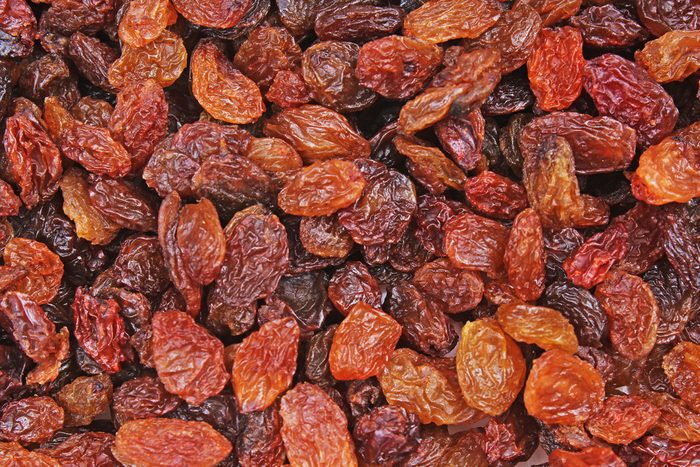
Raisins
Similarly, red grapes have 2016 total antioxidants per serving, and raisins contain 2490. Raisins can also help stop your junk food cravings too, thanks to this one crazy trick!
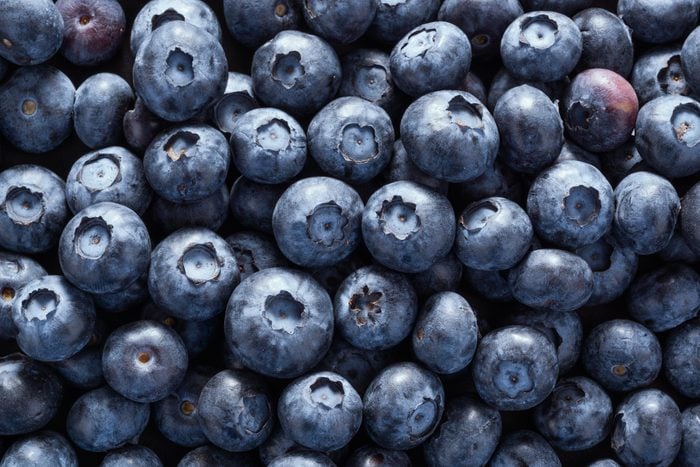
Blueberries
There’s a reason blueberries are one of the healthiest fruits you can eat. Blueberries have more antioxidants than 40 other common fruits and vegetables. Eating one cup of wild blueberries will provide 13,427 total antioxidants, about 10 times the USDA’s recommendation. The farmed variety will give you 9019 per cup. If you’re looking for a creative way to eat more blueberries, consider trying TikTok trend’s nature’s cereal.
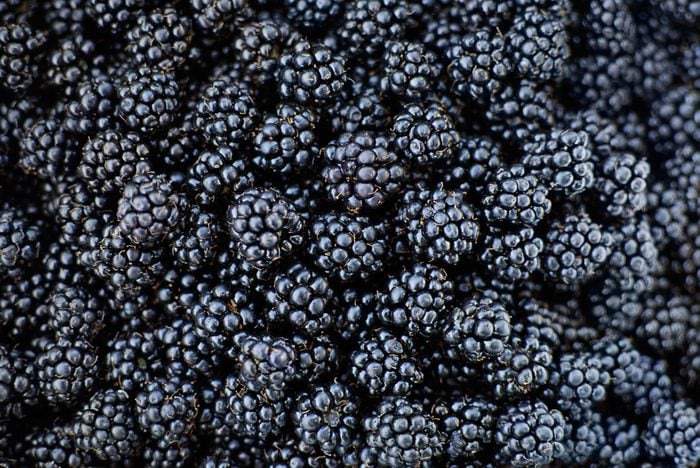
Blackberries
Blackberries are rich in antioxidants, but you should also know that they’re packed with polyols, the main component in sugar substitutes (which are often blamed for abdominal issues such as gas). These other healthy foods can cause gas as well.
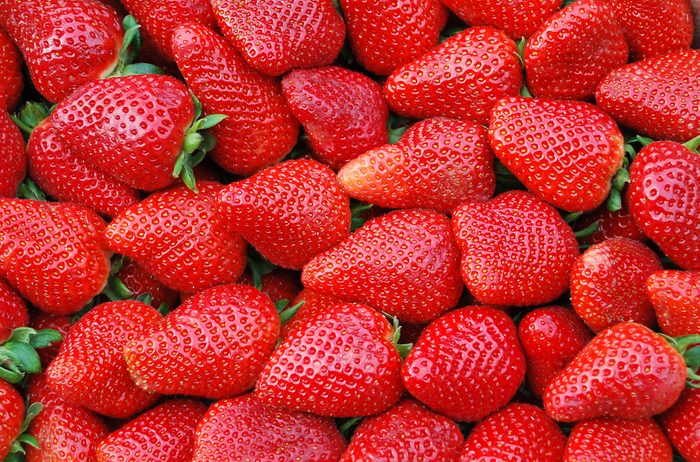
Strawberries
Like blueberries and raspberries, strawberry nutrition is high in antioxidants, which protect healthy cells from many cancers. Here are other strawberry health benefits that will make you want to add more to your diet.
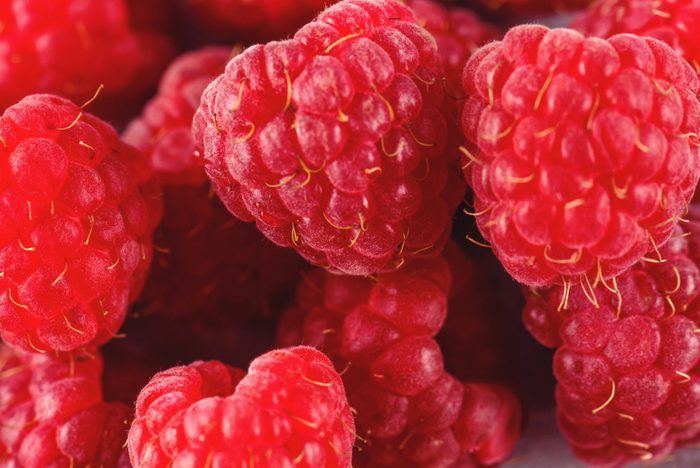
Raspberries
Make your portion more powerful: A study in the Journal of Nutrition determined that the antioxidant ellagic acid (found in raspberries, pomegranates, walnuts, and cranberries) enhanced the ability of quercetin (an antioxidant found in apples, grapes, onions, and buckwheat) to kill off cancerous cells. Here are some other foods that can help prevent cancer.
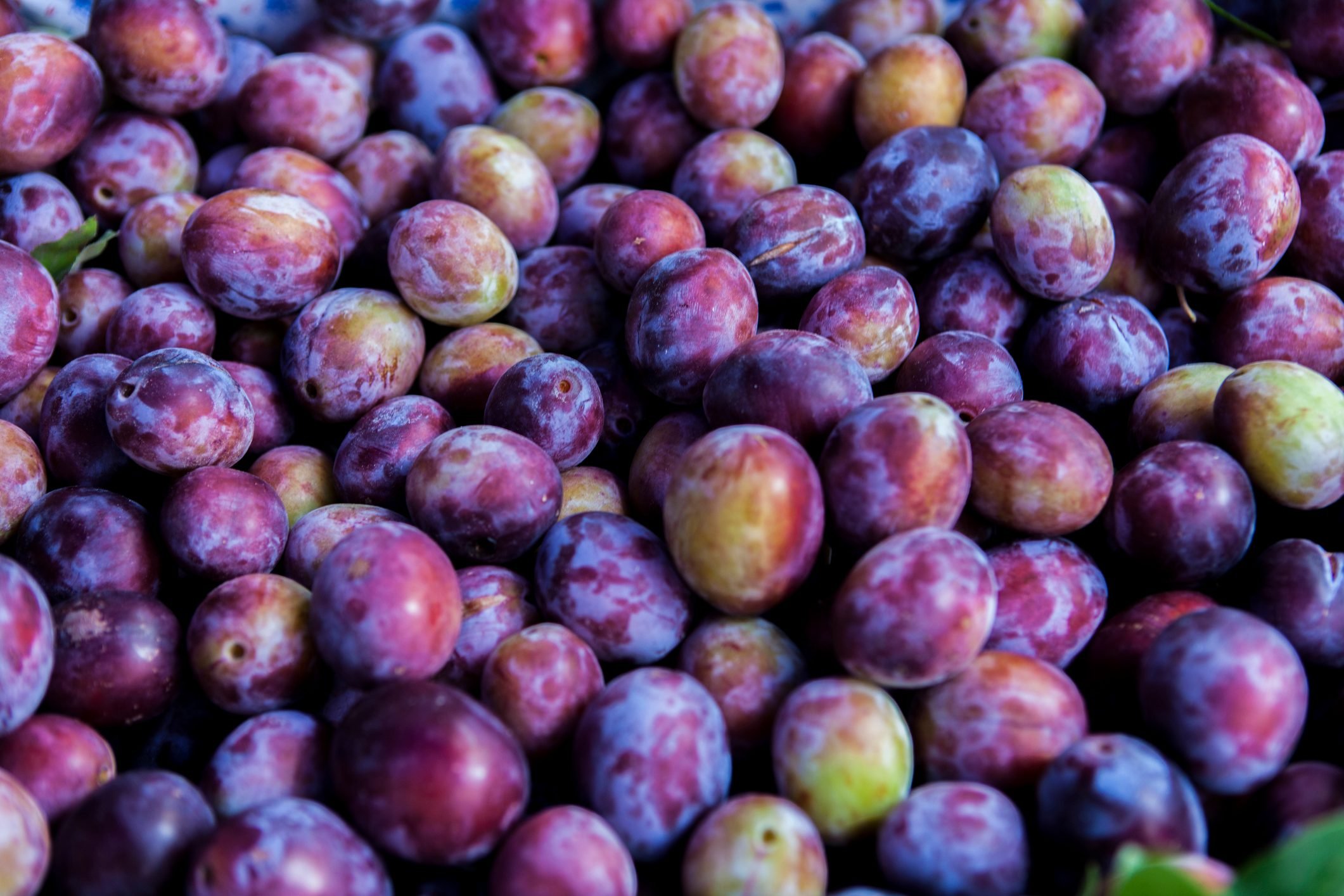
Plums
Pick the black kind to get 4844 antioxidants per serving. Dried plums (prunes) offer slightly more.

Oranges
Oranges, along with mangos, peaches, and watermelon, are rich in beta-cryptoxanthin, an antioxidant and one of a pair of compounds that lowered the risk of arthritis by an impressive 20 to 40 percent in a UK study of 25,000 people.
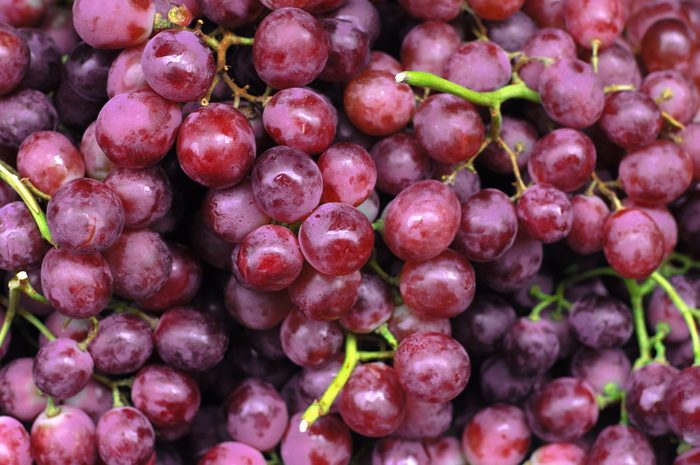
Red Grapes
Enjoy this healthy, low-calorie snack: You can eat 20 red seedless grapes and still consume only 100 calories. Try these other healthy 100-calorie snacks as well.
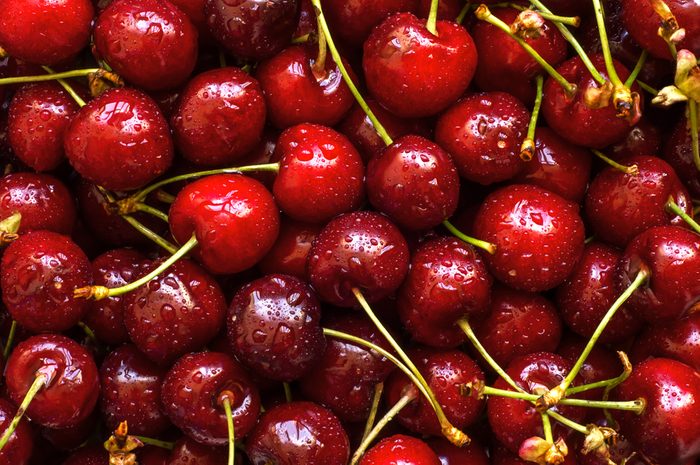
Cherries
Juicy and tart Montmorency cherries are your best source of the antioxidant melatonin. Other cherries have it, too, but Montmorency has the most. Melatonin protects the skin against ultraviolet radiation. Researchers have discovered that this powerful little nutrient also helps repair sunburned skin since it stimulates new skin-cell growth. Cherries are also packed with vitamin C, which is needed to build collagen—your skin’s natural “scaffolding” and a wrinkle preventer. While you’re chomping on cherries, make sure you avoid these everyday habits that cause wrinkles.
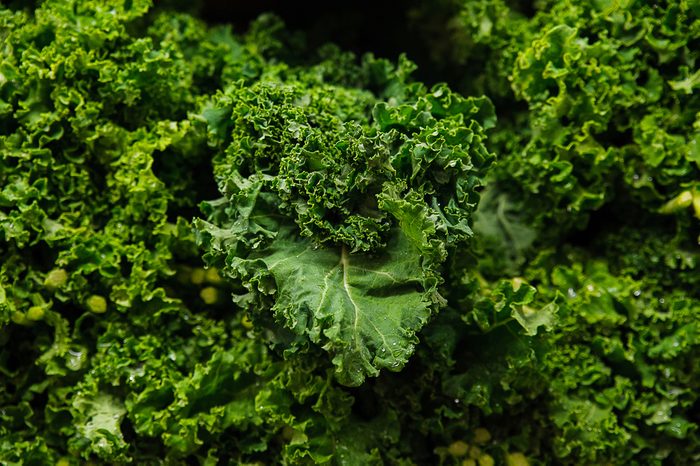
Kale
Rich in cancer-fighting antioxidants and vitamins, kale is also a good source of beta-carotene and is a top combo of both lutein and zeaxanthin. Here are a few more reasons to eat lots of kale.
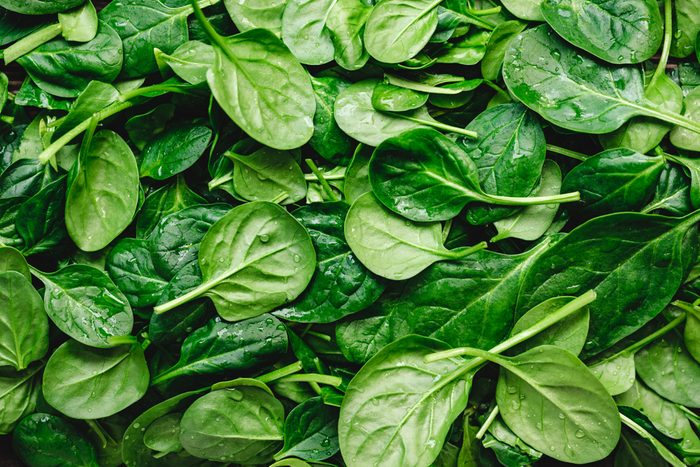
Spinach
Spinach is packed with carotenoids—antioxidants that promote healthy eyes and help prevent macular degeneration, the leading cause of blindness in older people. Try these spinach meal ideas to sneak more spinach into your diet.
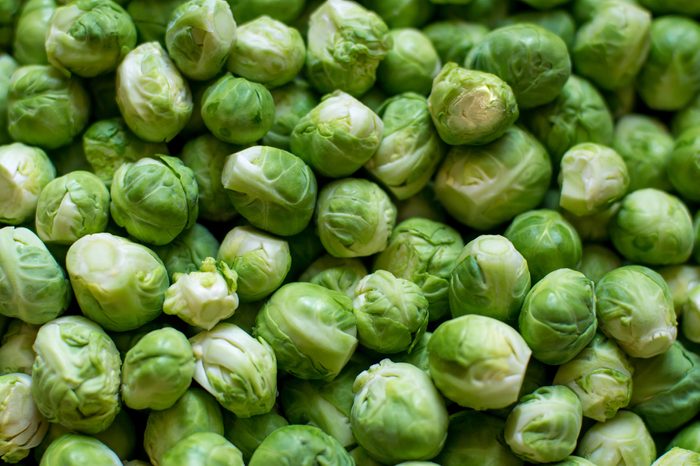
Brussels sprouts
These broccoli cousins have plenty of bitter sulforaphane as well as compounds called isothiocyanates, which detoxify cancer-causing substances in the body before they can do their dirty work. In one Dutch study, guys who ate Brussels sprouts daily for three weeks had 28 percent less genetic damage (gene damage is a root cause of cancer) than those who didn’t eat sprouts.
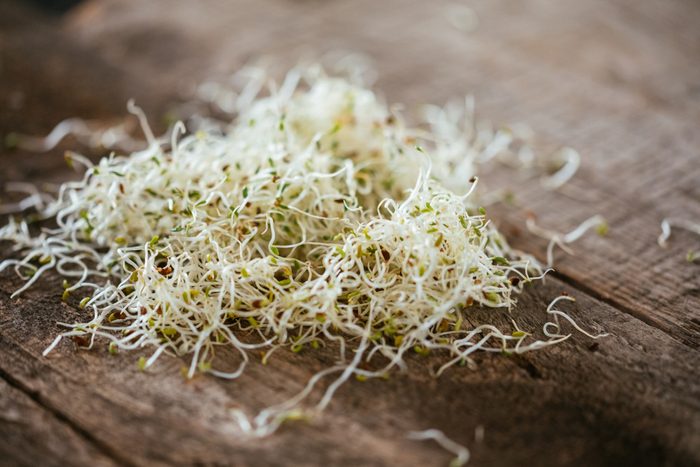
Alfalfa Sprouts
These tiny powerhouses are rich in beta-carotene, an antioxidant that protects against lung cancer and helps maintain healthy skin, hair, nails, gums, glands, bones, and teeth. It’s also a good source of vitamin E, which may help prevent heart attacks, strokes, and lower the risk of death from bladder cancer.
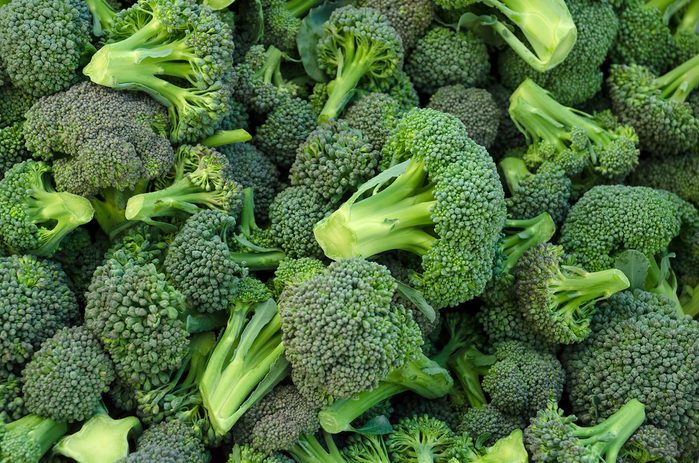
Broccoli flowers
Broccoli is full of cancer-fighting antioxidants. A 2018 study in Molecular Nutrition & Food Research found men who ate 5 servings or more per week of cruciferous veggies like broccoli were half as likely to develop bladder cancers over a 10-year period as men who rarely ate them. Here are some more foods that are even healthier than you realized.
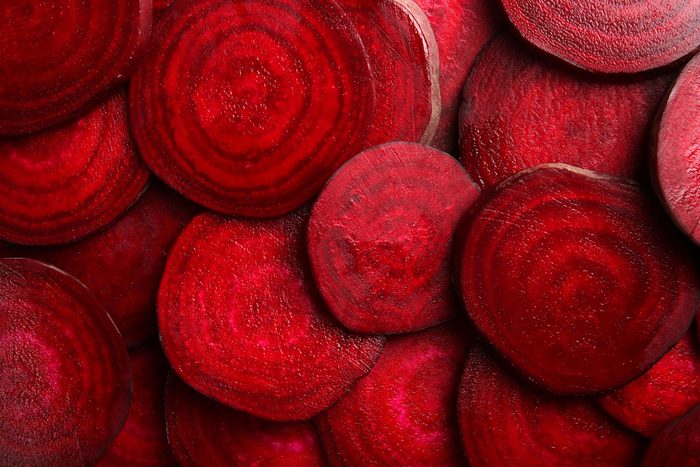
Beets
Beets are packed with healthy nutrients, like five essential vitamins, calcium, iron, potassium, and protein. Learn more about the amazing health benefits of beets.
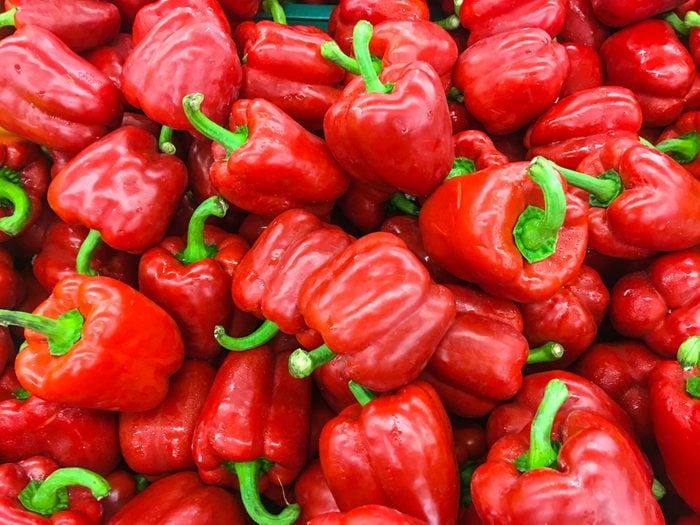
Red bell peppers
One medium pepper is light on calories (only 32!) but heavy on vitamin C, providing more than 150 percent of your recommended daily value and warding off atherosclerosis, which can lead to heart disease. Watch for the signs that you might be running low on vitamin C.
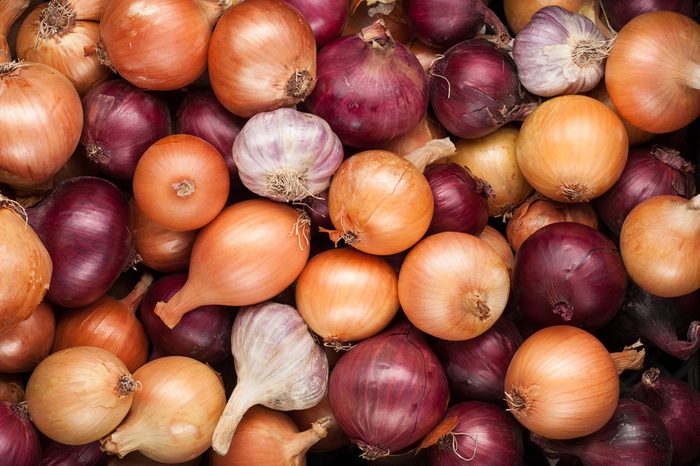
Onions
You’ll get the most out of this veggie’s cancer-fighting antioxidants by eating it raw; cooking onions at a high heat significantly reduces the benefits of phytochemicals that protect against lung and prostate cancer. And if you’re going to choose a certain type of onion, make it this one!
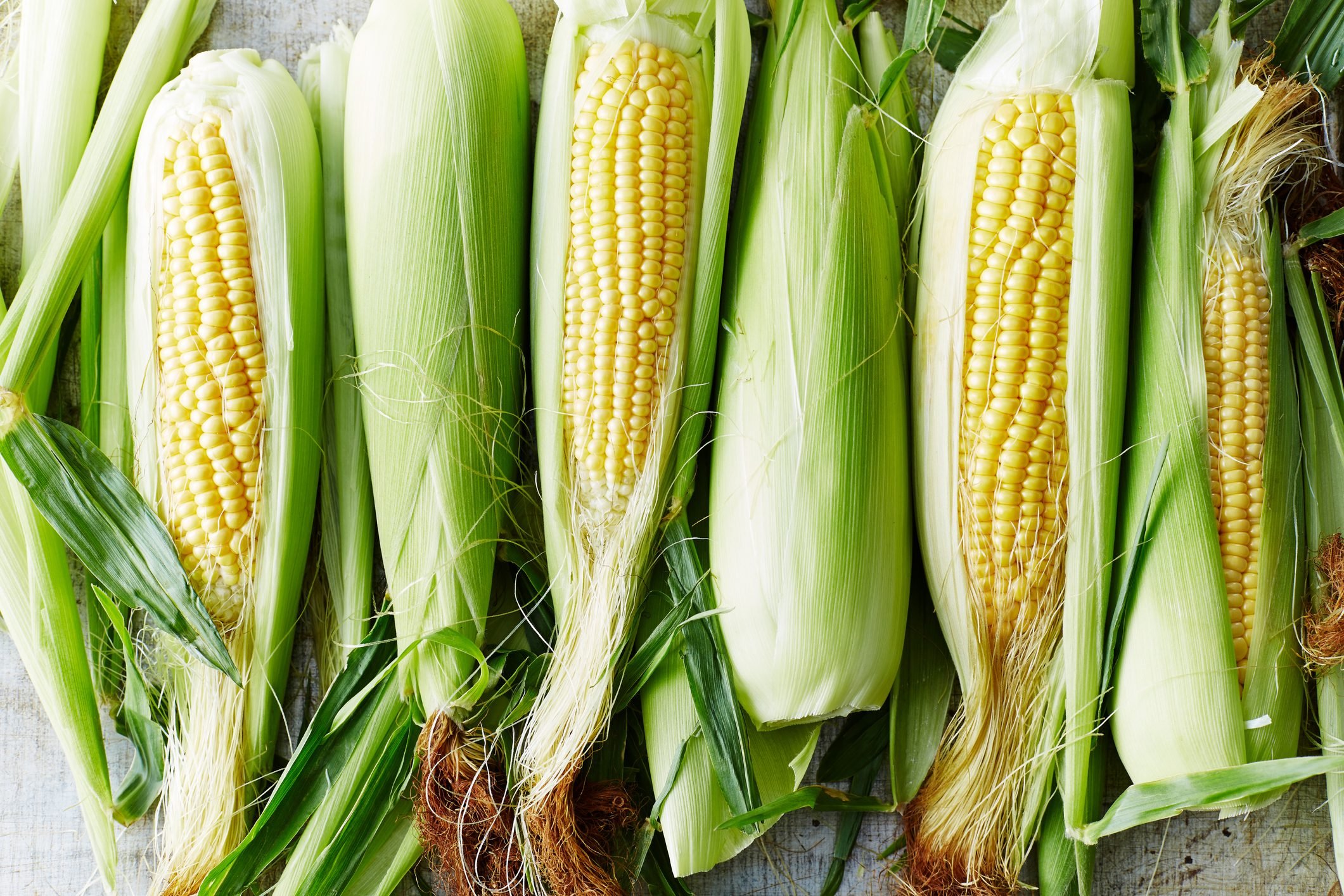
Corn
A study in the Journal of Agricultural Food and Chemistry found that the longer corn was cooked, the higher the level of antioxidants like lutein, which combats blindness in older adults. If you want to really switch things up, try making chicha morada, a purple corn drink that’s packed with health benefits.
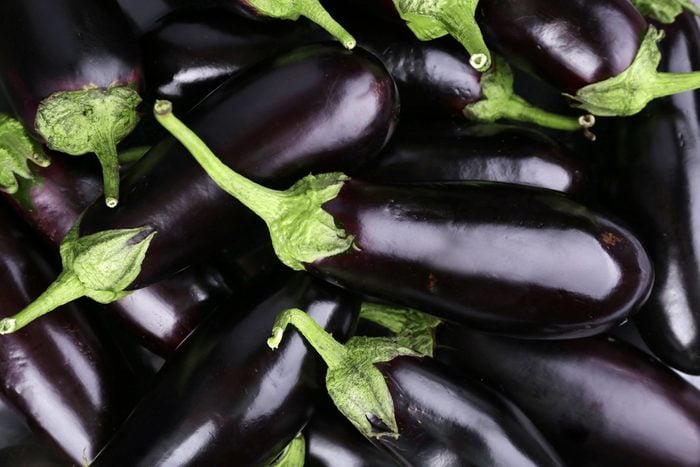
Eggplant
All types of eggplant are rich in bitter chlorogenic acid, which protects against the buildup of heart-threatening plaque in artery walls (and fights cancer, too!). Eggplant can help lower cholesterol and relax artery walls, which can cut your risk of high blood pressure. Here are some more foods that can help lower your blood pressure.